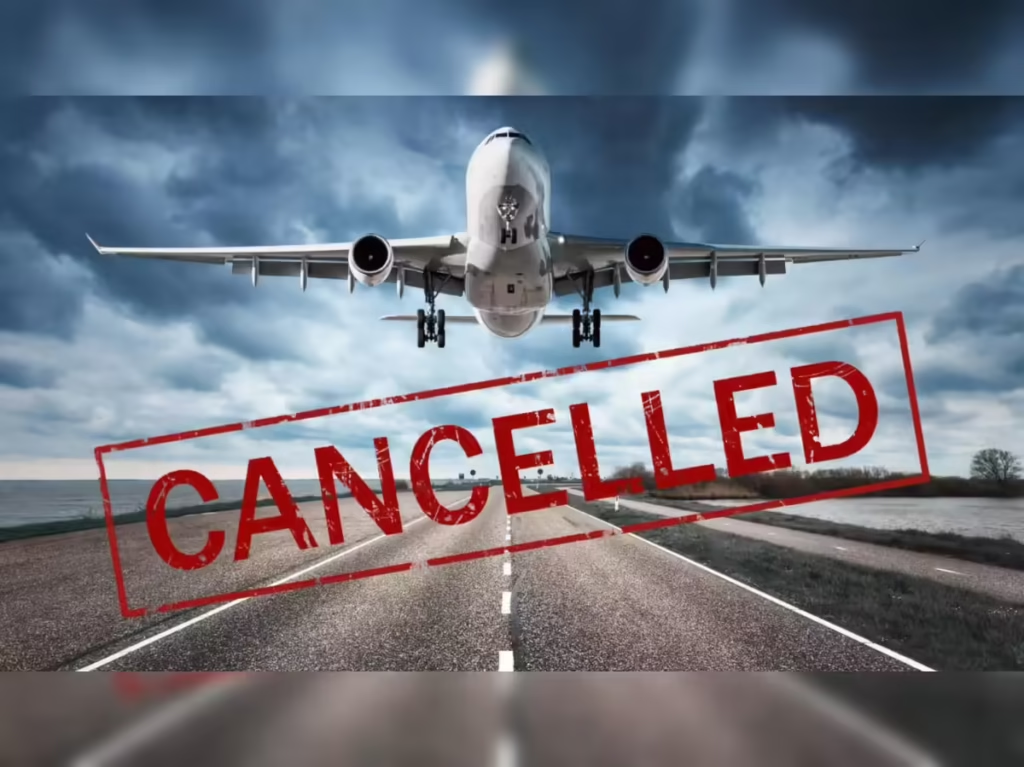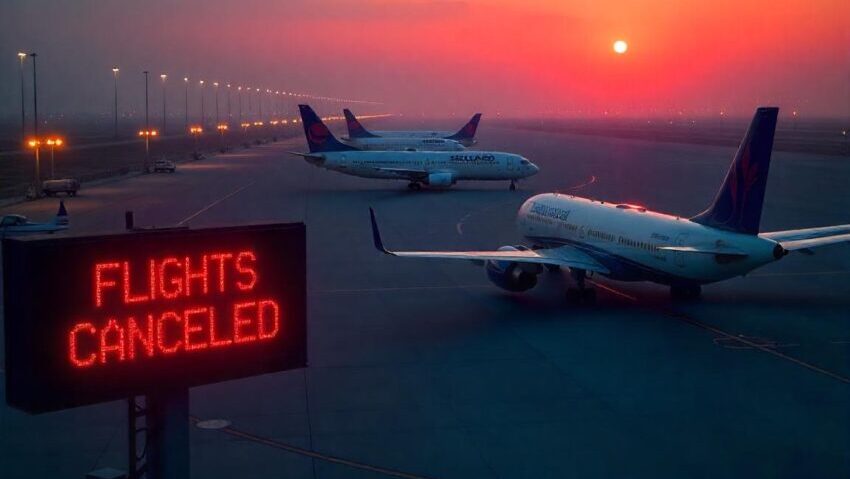The skies over the Middle East have become increasingly tense, and thousands of travelers are feeling the impact. Major UAE airlines—including Emirates, Etihad, flydubai, and Air Arabia—have had to delay, reroute, or cancel several flights due to growing tensions between Iran and Israel.
In response to recent military escalations, several countries in the region—including Iran, Iraq, Syria, Qatar, Kuwait, Bahrain, and even the UAE—have closed parts of their airspace. This has caused serious disruption to flight paths and has left many passengers stranded or confused.
What’s Causing the Chaos?
The ongoing conflict between Iran and Israel has spilled over into international air travel. As both countries have exchanged missiles and threats, their neighbors have taken precautionary measures by closing their skies to protect civilian aircraft.
Because many flights from the UAE travel over these regions on their way to destinations in Europe, Asia, and the Middle East, the closures have forced airlines to make fast decisions. This includes:
- Canceling flights to specific cities.
- Rerouting journeys over safer but longer paths.
- Adjusting arrival and departure times.
Even if your flight doesn’t go directly over Iran or Israel, the change in air routes is affecting travel times and aircraft availability worldwide.
What Are the UAE Airlines Doing?

UAE carriers have been quick to respond to the situation. Each one has made changes to protect passengers and staff while trying to limit inconvenience.
Emirates
- Flights to Tehran, Baghdad, and Basra have been suspended until at least the end of June.
- Other flights in the region have been rerouted to avoid affected airspaces.
Etihad
- The airline has paused flights to Tel Aviv until at least mid-July.
- Other routes have been adjusted or delayed based on evolving conditions.
flydubai
- The budget airline has temporarily stopped flying to many cities in the Middle East, including parts of Iran, Iraq, Syria, and Israel.
- Routes to some Russian cities and St. Petersburg have also been suspended.
Air Arabia
- The airline has halted service to several countries, including Iran, Iraq, Russia, Georgia, Armenia, and Azerbaijan.
All four carriers have encouraged passengers to check the status of their flights frequently and have offered flexible rebooking or full refunds for affected travelers.
Global Ripple Effects
The Middle East is a critical link between the East and West. Flights from Europe to Asia and beyond often pass through this region. With the airspace partially closed, planes now need to take longer routes over Egypt, Turkey, the Caspian Sea, or Central Asia.
This has caused:
- Longer flight times: Some journeys are now up to three hours longer.
- Higher costs: Extra fuel and staffing needs are pushing up airline operating costs.
- Delays worldwide: Aircraft rotation has been disrupted, affecting other flights outside the region too.
Major international airlines from countries like Australia, the UK, and the United States are also affected. Some have canceled Middle East routes or changed their flight paths to avoid the conflict zone.
In one case, a long-haul flight had to turn back midair after an unexpected change in airspace rules. Some passengers had to spend thousands of dollars to rebook their flights through safer routes.
Passenger Safety Comes First

Despite the inconvenience, airlines are taking these steps to protect their passengers and crews. Airline safety teams are working 24/7 to:
- Monitor airspace changes in real-time.
- Communicate with government and aviation officials.
- Use satellite and military intelligence to avoid dangerous zones.
No airline wants to take a risk when it comes to safety. As a result, even when some airspace restrictions are lifted, carriers are choosing to wait longer before restarting flights.
What You Can Do as a Passenger
If you’re planning to fly soon—especially through or near the Middle East—here are a few helpful tips:
- Check your flight status often: Airline websites and apps provide the latest updates.
- Review your airline’s policy: Most airlines are offering refunds or free changes for flights that are canceled or delayed due to this crisis.
- Get travel insurance: Look for plans that cover cancellations due to political unrest or airspace issues.
- Be flexible: If possible, give yourself extra time to travel or consider flying on a different route, even if it takes longer.
Why This Is a Big Deal
The air routes over the Middle East have become more important than ever. Since 2022, airlines have avoided Russian and Ukrainian airspace due to that conflict. That means fewer options are available when trouble erupts in another region like the Gulf.
Unfortunately, this isn’t the first time such tensions have affected civilian air travel. Past conflicts have led to tragedies involving commercial jets, so airlines are rightfully cautious.
Even though some of the closed airspaces have reopened briefly in recent days, the situation remains unpredictable. Airlines are taking a “better safe than sorry” approach and delaying their return to regular service.
When Will Things Get Better?
Right now, airlines are hoping to resume normal schedules by the end of June or mid-July. But that depends on how the situation between Iran and Israel develops.
Some airlines may return to full service sooner if tensions ease and countries reopen their airspace permanently. Others may take longer if they believe safety remains at risk.
In the meantime, travelers should expect more delays, route changes, and even last-minute cancellations.
Final Thoughts
The ongoing conflict between Iran and Israel has had a big impact on global travel—especially for people flying through the UAE. Emirates, Etihad, flydubai, and Air Arabia have taken steps to protect passengers, even if that means delays and inconvenience.
If you’re planning to fly soon, keep an eye on your booking, stay flexible, and plan ahead. While the skies may be uncertain today, airlines are doing their best to navigate safely and responsibly.
Also read: Historic Summit: Trump and Putin Plan Saudi Arabia Meeting



